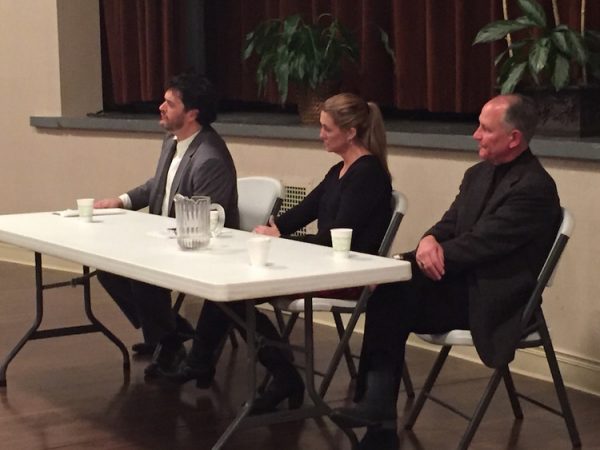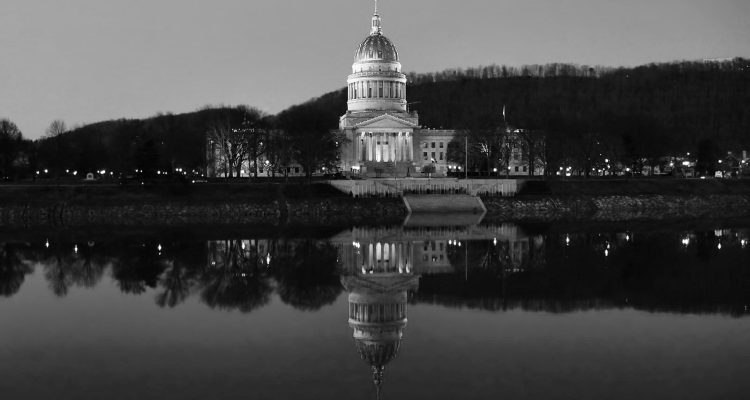This article is presented via a Weelunk partnership with Dateline:Wheeling.
For more great Lee Chottiner stories, poetry, and images that focus on Wheeling, go to DatelineWheeling.com.
If you’re Black, Hispanic, Asian, female, openly gay, Jewish, Muslim, or for that matter, profess any religion other than Christianity, you’ll be hard-pressed to find anyone in the West Virginia Legislature who looks like you and you or shares your heritage.
The 134 members of the state’s Senate and House of Delegates, combined, are a homogenous body — overwhelmingly white, male, Christian and middle aged (or older).
There are just 20 women in both houses combined (and only one in the Senate). Additionally, there are just three Blacks, one Jew, one Hispanic and one openly gay member.
These are the people making the state’s laws, and their anemic level of diversity is emblematic of a greater problem facing the Mountain State: There are too few people with different races and religions, not enough college-educated professionals, and their absence contributes to the overriding image of West Virginia as a backwards, uneducated state.

This diversity dearth can’t continue, according to the three members of the legislature who took part in a panel discussion Sunday, Nov. 22, at Temple Shalom. Dels. Erikka Storch (R-Ohio), Michael Pushkin (D-Kanawha) and Sen. Jeffrey Kessler (D-Marshall), lamented the legislature’s lack of diversity and what it means to the people of our state.
More than once, they addressed how a lack of diversity limits the understanding lawmakers bring to certain bills. That’s especially true in the Senate, Kessler said, where ”33 white guys,” as he put it, suffer from a lack of understanding when debating issues related to women’s health and safety issues.
“We miss that in the Senate,” he said. “I’d like to see more women get involved in politics. It does change the debate.”
Storch said she understands why they don’t. As a working mother of three, she rues the travel time to and from Charleston — as much as five hours for those living in the Eastern Panhandle — not to mention the family time it robs from female lawmakers who are frequently the chief caregivers for their children.
“I get it,” Storch said, who added, tongue in cheek, “I’m in a campaign to move the capitol back to Wheeling.”
To her, the diversity problem in the legislature isn’t just about race, gender and religion. It’s also about regions.
The state’s five regions are very different places, she said, and lawmakers from the Charleston area, who often consider themselves to be at the “epicenter” of West Virginia, don’t always appreciate how the bills they consider could affect people living elsewhere.
Pushkin, who is serving his first term in the House, said the lack of diversity sometimes breeds a lack of appreciation for people dealing with different circumstances, and that empathy gap, is reflected in the bills his colleagues introduce.
For instance, he expects to see a bill in the next session that calls for drug testing for recipients of aid through the Temporary Assistance for Needy Families program (TANF). That program, he said, mostly benefits women and children.
“I think a lack of diversity can lead to this kind of thing, where people don’t understand what it’s like to be in their shoes,” he said.
Another example, he said, came in the final days of the last session when the leadership postponed a bill that would have permitted Uber, the well-known national ride-sharing service, to operate in the state. Two delegates tried and failed in committee to remove the bill’s nondiscrimination clause, which would have protected people based on sexual orientation. Currently, no such legal protection exists in West Virginia.
Rather than debate protections for gay people on the floor of the House, which could have been embarrassing, Pushkin said the leadership simply made the bill go away.
“It was a civil rights issue,” he said. “There is no give and take there. There is a right and wrong side to history.”
The only Jewish member of the legislature, Pushkin hasn’t encountered much anti-Semitism there, though a September interim session was scheduled for Rosh Hashanah, the Jewish New year.
“It was just poor planning on their part,” he said.
But since Pushkin belongs to a small minority — Jews comprise less than 1 percent of the state’s population — a Charleston TV reporter recently asked him to respond to a colleague — Del. Josh Nelson (R-Boone) — who has petitioned Gov. Earl Ray Tomblin to ban “un-vetted” Syrian refugees from the state in light of the Nov. 13 Paris attacks. President Obama wants to bring 10,000 refugees to America next year.
To go along with that, Pushkin said, would be to go against the state’s long tradition of welcoming people fleeing strife in other lands.
“I said, ‘Look, I’m a Jew,” Pushkin recalled. “I wouldn’t be here if West Virginia didn’t welcome my family 100 years ago when they were fleeing from Eastern Europe.”


